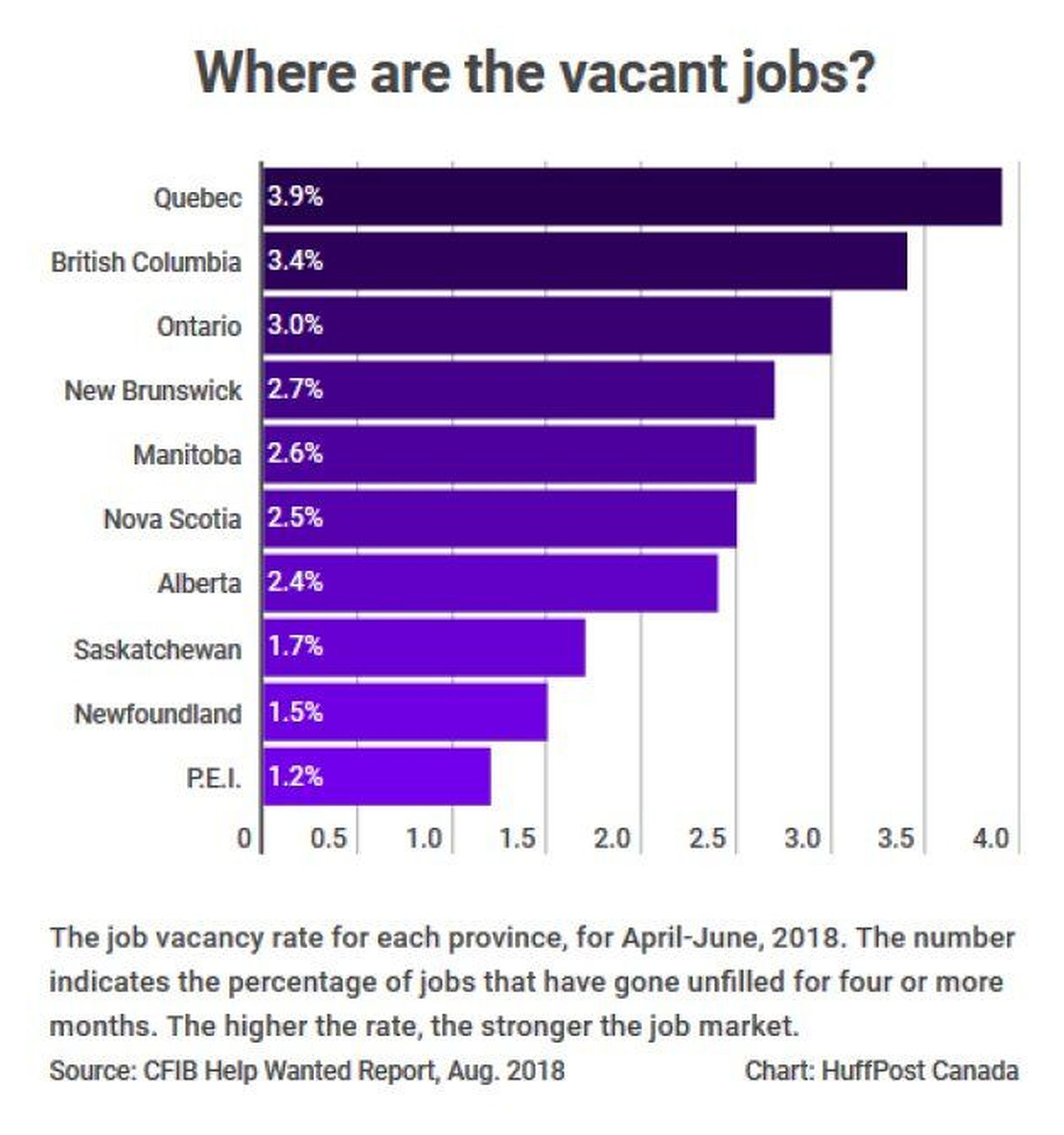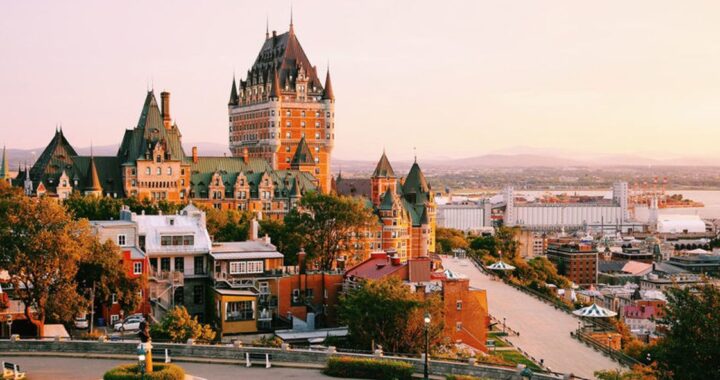Why Migrating to Canada and Settling in Quebec Makes Better Sense?

Quebec is a multicultural province and is one of the best places in the world to move and settle. It provides a better life for people by providing all the benefits like better employment, medical support and best education system.
For immigrants, migrating to Canada and settling in Quebec province makes a better sense. Let’s understand why?
In the past three months, Quebec employment levels have risen, and in February, about 66,000 people in the province have earned jobs.
As a result of these changes, the unemployment rate of Quebec was exceptionally small at 4.5% last month. It is the lowest since equivalent statistics were collected from Statistics Canada in 1976.
Many of the jobs were done for young people between 15 and 24 years old. For that age group, the unemployment rate decreased to 6.8%, also the lowest since 1976.
Statistics Canada describes the unemployment rate as a proportion of the population of the working people over the age of 15. The average for a demographic group is the number of people working in that category, for example, young people aged 15-24 years.
Benefits of Fewer Unemployment Rates in the Quebec Province

Fewer unemployment rates are beneficial for job seekers, as they can choose from more jobs. Employers have to recruit and retain talent. That is why low unemployment rates can be viewed as “a labour market.”
Canada resorts to immigration to meet labour market demands, when not enough, young people join the workforce.
Marco Mendicino projected that about 80 per cent of Canada’s rise in population would be the product of immigration, hitting 100 per cent by the 2030s, in his first major speech as Canadian Immigration Minister. Many of these are immigrants of the business community, that is, foreigners coming to work in Canada.
Opportunity Rates in Other Canadian Provinces
In Alberta, Nova Scotia and Manitoba, there have been rises in jobs as well. There was little improvement in the rest of the world.
Last month Alberta saw 11,000 workers, mainly among young people. Jobs in Alberta were mostly unchanged compared to the previous year.
Nova Scotia’s jobs increased by 3,700 on the east coast of Canada. The rate of unemployment increased by 0.4% to 7.8%.
While Manitoba’sManitoba’s unemployment rate was almost 5% unchanged, about 3,200 more people in February were working. Since December, Manitoba has seen a rise in jobs. Jobs in this Canadian Prairie province have risen 1.5% since last year.
The job rate in New Brunswick remained the same last month and fell to 6.9%.
The rate of unemployment rose as more people looked for jobs in British Columbia (B.C.) and Ontario. The unemployment rate was 5%, and the unemployment rate in Ontario was 5.5% in February.
Prince Edward Island (PEI) had a modest rise in jobs and a higher unemployment rate of 0.5 to 8%.
Around January and February, Newfoundland and Labrador remained mostly unchanged. Jobs and unemployment have marginally risen. Currently, the rate of joblessness is 12%.
Nevertheless, in Saskatchewan, the job rate marginally improved to 6.2 per cent.
Economy’s View on Opportunities
In the past few weeks, economic instability in Canada and abroad has increased with the spread of the Coronavirus.
The Bank of Canada reduced its overnight interest rate last week to help offset future economic impacts in Canada.
Crude oil prices have also plummeted because of the price war between large suppliers, such as Saudi Arabia, which is likely to negatively impact the economy of Canada, particularly in oil-rich provinces like Alberta.
Over the coming months, these factors could lead to weaker employment over Canada.
Why Settling in Quebec Makes Sense?

Image Source: HuffPost Canada, Data Source: Canadian Federation of Independent Business (CFIB)
In urban centres and suburbs, immigrants to Quebec find decent employment and one of the best attributes for life in the country. Push the boundaries and broaden the horizons; you will achieve the goals.
There are other reasons to choose Quebec for immigration. One by one is presented to you below.
Culture of the Quebec
The nightlife, the music and the food which make the culture great are known in Québec. The province has a variety of lifestyle and has been welcoming multicultural refugees around the world for many years.
Known for its Beauty
The province is renowned for its majestic sights, which make it a place to visit. Québec has several regions, and you probably couldn’t travel without a second glance. Some of the best reasons to immigrate to Quebec is the magnificent scenery and the unabated warmth in the environment.
Investor Program for Immigrants
In Québec, immigrants enjoy a plan for immigrant investors allowing entrepreneurs and investment firms worldwide to relocate and invest in the Quebec economy. In exchange, they are entitled to benefits and citizenship.
Good Standard of Living
By contrast to other provinces by Canada, living rates in Quebec are significantly lower. If you move to Quebec, you might afford to buy a furnished house for around $900 per month. Quebec has a smaller living rate and provides similar benefits to Canadians. And also other benefits like health care, accessible transportation.top-notch education
Migrating to Quebec
To qualifying applicants, Quebec has a much simpler immigration system. The best is that qualifying applicants will bring their family members with them, who will benefit from a Canadian citizen with the same privileges and freedoms.
The economy in Quebec has a high average potential for growth that focuses primarily on manufacturing and service. Quebec’s growth is not supported. A province with a booming economy would undoubtedly be the perfect location for a family to be settled and educated.

 What actions by Trump Government are in store for illegal immigrants in US? What are Challenges to deport illegal immigrants from US?
What actions by Trump Government are in store for illegal immigrants in US? What are Challenges to deport illegal immigrants from US?  What are changes in Canada Start up Visa Program and Self-Employed Persons Program. How would it affect the potential immigrants to Canada?
What are changes in Canada Start up Visa Program and Self-Employed Persons Program. How would it affect the potential immigrants to Canada?  Launch Your Dreams: A Guide to Canada’s Start-Up Visa Program for Global Entrepreneurs
Launch Your Dreams: A Guide to Canada’s Start-Up Visa Program for Global Entrepreneurs  Options for Immigrating to Canada as a Healthcare Worker- Best Canadian Provinces that offer good salaries
Options for Immigrating to Canada as a Healthcare Worker- Best Canadian Provinces that offer good salaries  Immigrating to Quebec province Canada- Professions in demand with salaries- Racial Discrimination
Immigrating to Quebec province Canada- Professions in demand with salaries- Racial Discrimination  H1B Visa- Eligibility Requirements- its Duration- Process to apply and Professions in demand
H1B Visa- Eligibility Requirements- its Duration- Process to apply and Professions in demand  Recent Changes to Canada’s Work Permit Rules and its impact on Immigrants from India
Recent Changes to Canada’s Work Permit Rules and its impact on Immigrants from India  Applications for UK Immigration witness major decline as the Immigration Laws undergo significant changes
Applications for UK Immigration witness major decline as the Immigration Laws undergo significant changes